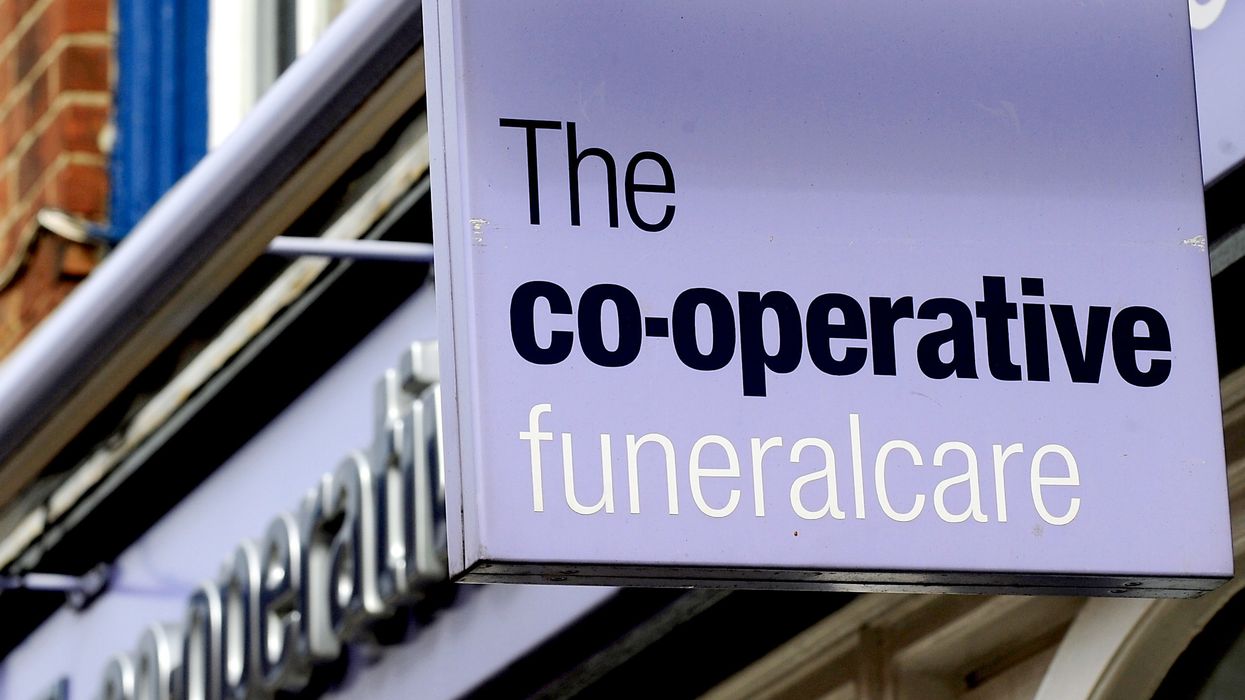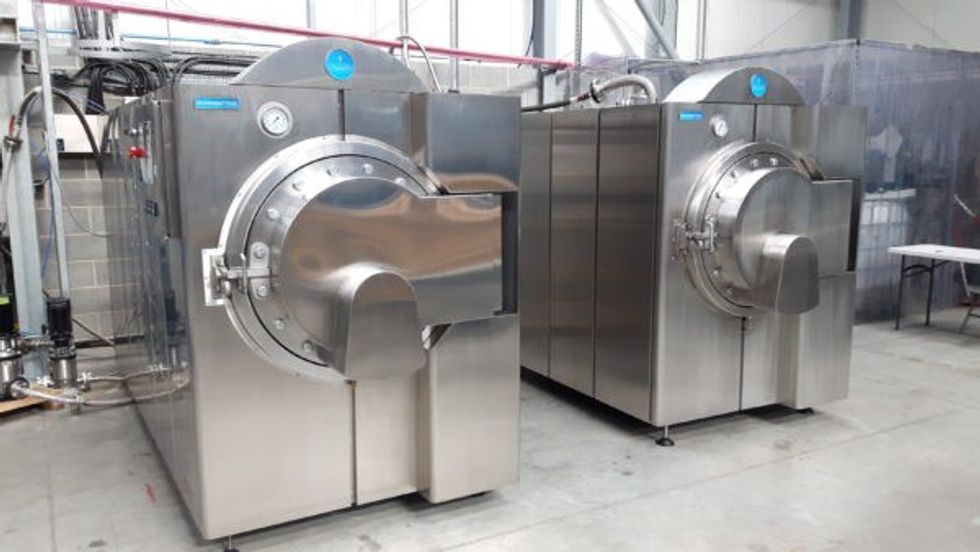
Water cremation will be available in Britain for the first time in what is billed a more sustainable option for breaking down human remains.
The process, known as resomation, uses a mix of potassium hydroxide and water.
It takes around four hours and leaves just bones remaining which are powdered and returned to families in a similar way to ashes.
The new way to dispose of a body is the first in the UK since the introduction of the Cremation Act in 1902

Resomation is currently growing popular in Canada, South Africa and the US.
The method begins by placing the deceased in a biodegradable pouch, which is then immersed in a container filled with pressurised and heated water, along with a small amount of potassium hydroxide.
Co-op Funeralcare will be the first to offer the alternative cremation and will start later this year.
Traditional cremation practices result in the release of carbon dioxide and potentially hazardous gases, while burials carry the risk of contaminating groundwater sources.
The water process produces a third less greenhouse gas than cremation and uses a seventh of the energy, according to the British company Resomation, which supplies the equipment.
The used liquid is even "safely returned to the water cycle free from any traces of DNA", the founder of the company, Sandy Sullivan claims.
The latest cremation procedure was used by Archbishop Desmond Tutu for his funeral arrangements in South Africa when he died in 2021.
Gill Stewart, managing director of Co-op Funeralcare, said that "land for burials is running out", adding that resomation could help the industry "improve its carbon reduction targets and meet the capacity challenges of a growing population".

Professor Douglas Davies, an anthropologist, theologian and death rites expert at Durham University, told the Independent: “The rise in ecological and sustainability concerns over the past decade combined with a desire to be part of nature or laid to rest in a natural setting, means more people are considering the environmental impact of their body once they die.
“The reduced carbon footprint that may come with resomation compared with other forms of body disposal, means it will no doubt be of interest to many people as the practice is increasingly made available in the UK."
Resomation will only be offered in specific area - which are yet to be announced, the funeral chain said.
from GB News https://ift.tt/gztecsq

Water cremation will be available in Britain for the first time in what is billed a more sustainable option for breaking down human remains.
The process, known as resomation, uses a mix of potassium hydroxide and water.
It takes around four hours and leaves just bones remaining which are powdered and returned to families in a similar way to ashes.
The new way to dispose of a body is the first in the UK since the introduction of the Cremation Act in 1902

Resomation is currently growing popular in Canada, South Africa and the US.
The method begins by placing the deceased in a biodegradable pouch, which is then immersed in a container filled with pressurised and heated water, along with a small amount of potassium hydroxide.
Co-op Funeralcare will be the first to offer the alternative cremation and will start later this year.
Traditional cremation practices result in the release of carbon dioxide and potentially hazardous gases, while burials carry the risk of contaminating groundwater sources.
The water process produces a third less greenhouse gas than cremation and uses a seventh of the energy, according to the British company Resomation, which supplies the equipment.
The used liquid is even "safely returned to the water cycle free from any traces of DNA", the founder of the company, Sandy Sullivan claims.
The latest cremation procedure was used by Archbishop Desmond Tutu for his funeral arrangements in South Africa when he died in 2021.
Gill Stewart, managing director of Co-op Funeralcare, said that "land for burials is running out", adding that resomation could help the industry "improve its carbon reduction targets and meet the capacity challenges of a growing population".

Professor Douglas Davies, an anthropologist, theologian and death rites expert at Durham University, told the Independent: “The rise in ecological and sustainability concerns over the past decade combined with a desire to be part of nature or laid to rest in a natural setting, means more people are considering the environmental impact of their body once they die.
“The reduced carbon footprint that may come with resomation compared with other forms of body disposal, means it will no doubt be of interest to many people as the practice is increasingly made available in the UK."
Resomation will only be offered in specific area - which are yet to be announced, the funeral chain said.



0 Comments
Don't share any link